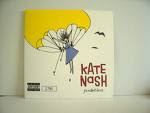
Why do women’s magazines make their readers miserable? Last week, Women in Journalism highlighted how the websites of magazines aimed at girls as young as 10 were using “lads’ mags tactics” by encouraging readers to upload photos of themselves in order to rate their own and others bodies.
The campaign group pointed to Bliss magazine, whose website ran a feature encouraging teenagers to rate their own thighs, legs and breasts with the options “happy”, “hate ‘em” and “ewwww”.
The tactic is nothing new. It’s been 17 years since Naomi Wolf’s The Beauty Myth convinced us that the cosmetics industry’s relationship with women’s magazines was symbiotic. The magazines hack away at their readers’ self-confidence in order to create a market for the “solutions” – the products their advertisers sell. Most women's magazine readers know this and accept it for the ludicrous exchange that it is, but such sophistication is a lot to ask of 10 year-olds.
What is new is the casual acceptance of body rating, among both readers and editorial staff. A whole generation of young journalists working on Bliss and its clones presumably regard such features as acceptable. And why wouldn’t they, given that they have grown up with lads’ mag “irony” and a belief that feminism is not of use to them.


